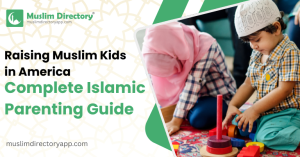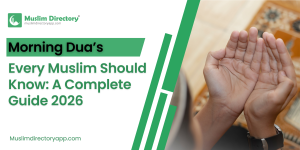As the blessed month of Ramadan approaches, Muslims worldwide are filled with anticipation, ready to embrace fasting, return to the mosque, and draw closer to Allah (swt).
Scholars have a pivotal role in this spiritual journey, inspiring the faithful by recounting how the Prophet Muhammad (pbuh) esteemed this month as a time to intensify worship and prioritize the deen over worldly distractions.
The Prophet Muhammad (pbuh) said, “When Ramadan begins, the gates of Paradise are opened.” (Sahih Bukhari) This highlights the exceptional opportunity Ramadan presents for believers to renew their commitment to their faith.
Ramadan of Prophet Muhammad (pbuh)
The Prophet Muhammad (pbuh) exemplified the utmost devotion and dedication during Ramadan, the month in which the Quran was revealed to him. It is reported that:
Increased Worship:

The Prophet (pbuh) would intensify his worship during the last ten nights of Ramadan in search of Laylat al-Qadr (the Night of Decree), which is better than a thousand months. He would spend these nights in prayer, recitation of the Quran, and supplication.
This is based on the Hadith, “When the last ten nights [of Ramadan] would begin, the Messenger of Allah would spend his night in worship, awaken his family, and exert himself in worship.” (Sahih Bukhari and Sahih Muslim)
Generosity:
Ibn Abbas (ra) reported, “The Prophet was the most generous of people, and he was most generous during Ramadan when Gabriel met him. Gabriel used to meet him every night during Ramadan to revise the Quran with him.
“The Messenger of Allah was so generous in giving good things that he was faster than the wind.” (Sahih Bukhari)
Equally compelling are the narratives of the Sahaba (companions of the Prophet) and righteous predecessors, who urged the Ummah to seize this fleeting month. They advocated for increased devotion, urging Muslims to immerse themselves in the Quran and worship.
Companions of the Prophet
Abu Bakr As-Siddiq (ra):
Known for his generosity and close companionship with the Prophet, Abu Bakr would increase his charitable acts during Ramadan, freeing slaves and giving generously to those in need, reflecting the spirit of generosity the Prophet (pbuh) embodied.
Umar ibn Al-Khattab (ra):
Umar was known for his profound commitment to justice and his leadership in establishing Taraweeh prayers in congregation. He would encourage people to attend these prayers during Ramadan, emphasizing the community aspect of worship in this holy month.
Abdullah ibn Umar (ra):
A devout follower of the Prophet’s Sunnah, Abdullah ibn Umar would strive to follow the Prophet’s practices closely. During Ramadan, he was particularly keen on performing extra prayers at night and reciting the Quran.
Aisha (ra), the wife of the Prophet, narrated many Hadiths about the Prophet’s practices during Ramadan, emphasizing the importance of seeking Laylat al-Qadr and the increased devotion the Prophet (pbuh) showed in the last ten nights of Ramadan.
However, a concerning trend has emerged among some scholars in the West, seemingly diluting the essence of Ramadan. They advocate for convenience, suggesting that Taraweeh is optional, and implying that minimal effort suffices, promoting a ‘quality over quantity’ approach to Ibadah.
This perspective risks breeding a generation that views traditional fervor towards Ramadan as cultural rather than intrinsic to Islam. Such a stance not only undermines the depth of our religious obligations but also distances the younger generation from understanding the true spirit of Ramadan.
The Quran reminds us, “O you who have believed, decreed upon you is fasting as it was decreed upon those before you that you may become righteous” (Quran 2:183). This verse emphasizes fasting’s purpose: to cultivate piety and consciousness of Allah (taqwa).
Moreover, the Prophet Muhammad (pbuh) said, “Whoever spends the nights of Ramadan in prayer out of faith and in the hope of reward, his previous sins will be forgiven.” (Sahih Bukhari and Muslim) This Hadith underscores the importance of embracing the full scope of Ramadan’s spiritual potential, beyond just fulfilling the minimum requirements.
The quest for ease in religious practice, juxtaposed with the diligence applied to worldly pursuits, presents a profound irony. While striving for excellence in professional and academic endeavors is commendable, equating the minimal fulfillment of religious duties with success is misguided.
Ramadan is not merely about meeting the basic obligations; it is an invitation to deepen our connection with Allah (swt), enhance our spiritual discipline, and elevate our character. As the Prophet Muhammad (pbuh) demonstrated and encouraged, this holy month is a chance to go above and beyond in our worship, seeking Allah’s pleasure and mercy.
Let this Ramadan be a turning point, where we challenge ourselves to exceed what we thought possible in our spiritual practices. Let us honor the legacy of the Prophet and his companions by dedicating ourselves to prayer, Quranic reflection, and acts of charity, with a zeal that transcends mere obligation.
Five Critical Initiatives Made Easy in Ramadan
To truly embrace the spirit of Ramadan and to counteract any tendencies towards spiritual complacency, consider adopting the following five critical initiatives:
Build a Quran Reading Routine:

Establishing a daily habit of reading and reflecting on the Quran during Ramadan can significantly enhance your spiritual journey. By dedicating a specific time each day, even just 15 to 30 minutes, you forge a deeper connection with Allah’s words, enriching your daily life well beyond this holy month.
Automate Your Charity:
The multiplied blessings of giving during Ramadan offer a unique opportunity for generosity. Automating a daily donation, no matter how small, to a local mosque or trusted Islamic charity ensures you partake in the continuous rewards of charity, embodying the spirit of giving throughout the month.
Adopt a Sunnah Practice:
Choosing to focus on a Sunnah practice, such as using the Miswak, smiling at others, or performing the Sunnah prayers of Dhuhr, throughout Ramadan encourages the integration of Prophetic traditions into everyday life, fostering a lasting connection to these sacred practices.
Incorporate Zikr Throughout Your Day:
The remembrance of Allah (Zikr) should permeate your day, transforming your spiritual state and fostering a continuous awareness of Allah’s presence. Integrating simple phrases of praise into your daily routine turns every action into an act of worship and spiritual growth.
Fast with Purpose:
Ramadan calls for a fast that extends beyond the physical abstention from food and drink; it’s an opportunity to also distance oneself from life’s distractions, like TV and excessive mobile phone use. This period of self-discipline enhances patience, forgiveness, and mindfulness, elevating your overall spiritual well-being.
In doing so, we not only uphold the sanctity of Ramadan but also fortify our faith, setting a precedent for generations to come. May Allah (swt) guide us to reap the rewards of this blessed month and help us emerge as better Muslims, fully attuned to the profound spiritual renewal Ramadan offers.










